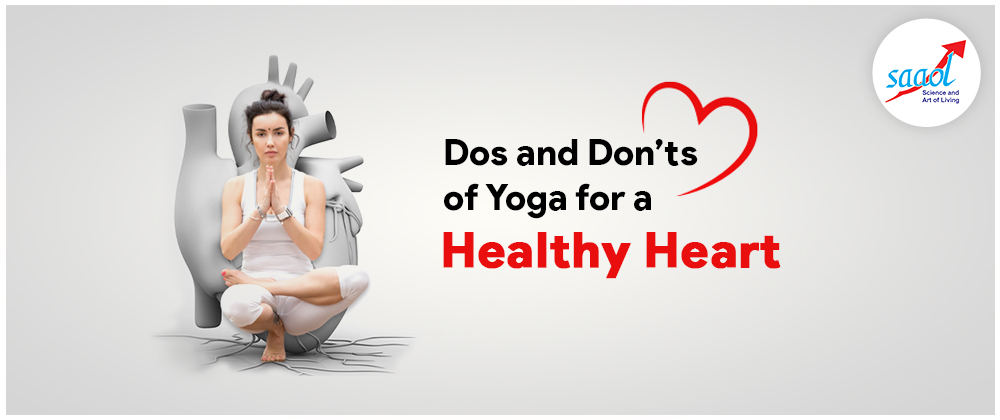Dos and Don’ts of Yoga for a Healthy Heart
SAAOL
- May 18, 2022
- 4 Min Read

Yoga has a long and rich history that spans over 3000 years. It is the root of many physical and spiritual practices that are still going strong today, and it’s not hard to see why. Yoga is an incredible way to foster mental, emotional, and physical healing in your life. Strengthening the muscles, improving blood circulation, building a strong immune system, and relieving stress are ways to improve heart health. It also increases awareness of body and mind by teaching one how to focus on your breath. But it’s important to know the dos and don’t of yoga for a healthy lifestyle.
What is Yoga?
Yoga is an ancient Indian practice designed to promote health and well-being. Based on the belief that the mind and body are connected, and by practicing yoga correctly, one can improve their overall health. There are many different types of yoga, but all styles share the same basic principles. These principles include proper breathing, postural alignment, and focus. When these principles are applied correctly, they can help to improve heart health in several ways. For starters, it can help to increase heart rate variability, which is a measure of how well the heart is functioning. Furthermore, it improves circulation and increases oxygen in the blood. All of these effects can lead to a healthier heart overall. So if you’re looking for a way to improve your heart health, consider giving yoga a try.Heart-Health Benefits of Yoga
When it comes to improving heart health, yoga is the best way. A recent study found that practicing yoga can help lower risk factors for heart disease, including high blood pressure, high cholesterol, and diabetes. Yoga benefits heart by:-- Increasing levels of HDL (good) cholesterol and lowering levels of LDL (bad) cholesterol
- Reduce stress
- Promote relaxation
How to do it?
There are many different ways to practice yoga, but the most important thing is to do it correctly to reap the benefits. Here are some tips on how to get started:- Choose the right type of yoga: If you are new to yoga, it is best to start with a beginner level. As you become more familiar with the poses and breathing techniques, you can progress to a more advanced level.
- Listen to your body: Yoga is not a competition and there is no need to push yourself beyond your limits. If a pose feels uncomfortable or you are unable to do it correctly, simply skip it or modify it to suit your abilities.
- Breathe deeply and properly: Proper breathing is essential in yoga and can help to relax the mind and body. Focus on taking deep, steady breaths throughout your practice.
- Stay hydrated: It is important to stay hydrated before and after your yoga practice, especially if you are sweating profusely. Drink plenty of water and avoid alcohol or caffeine before class.
- Don’t compare yourself to others: Everyone’s body is different and will progress at different rates. Focus on your practice.
What not to do?
If you’re new to yoga, there are a few things you should know before getting started.- Don’t Rush: Be sure to listen to your body and go at your own pace.
- Warm and Cool Yourself: It’s important to warm up before practicing yoga, and to cool down and relax afterward.
- Don’t overdo it: Yoga isn’t about pushing yourself to your limits it’s about finding a balance between effort and ease.
